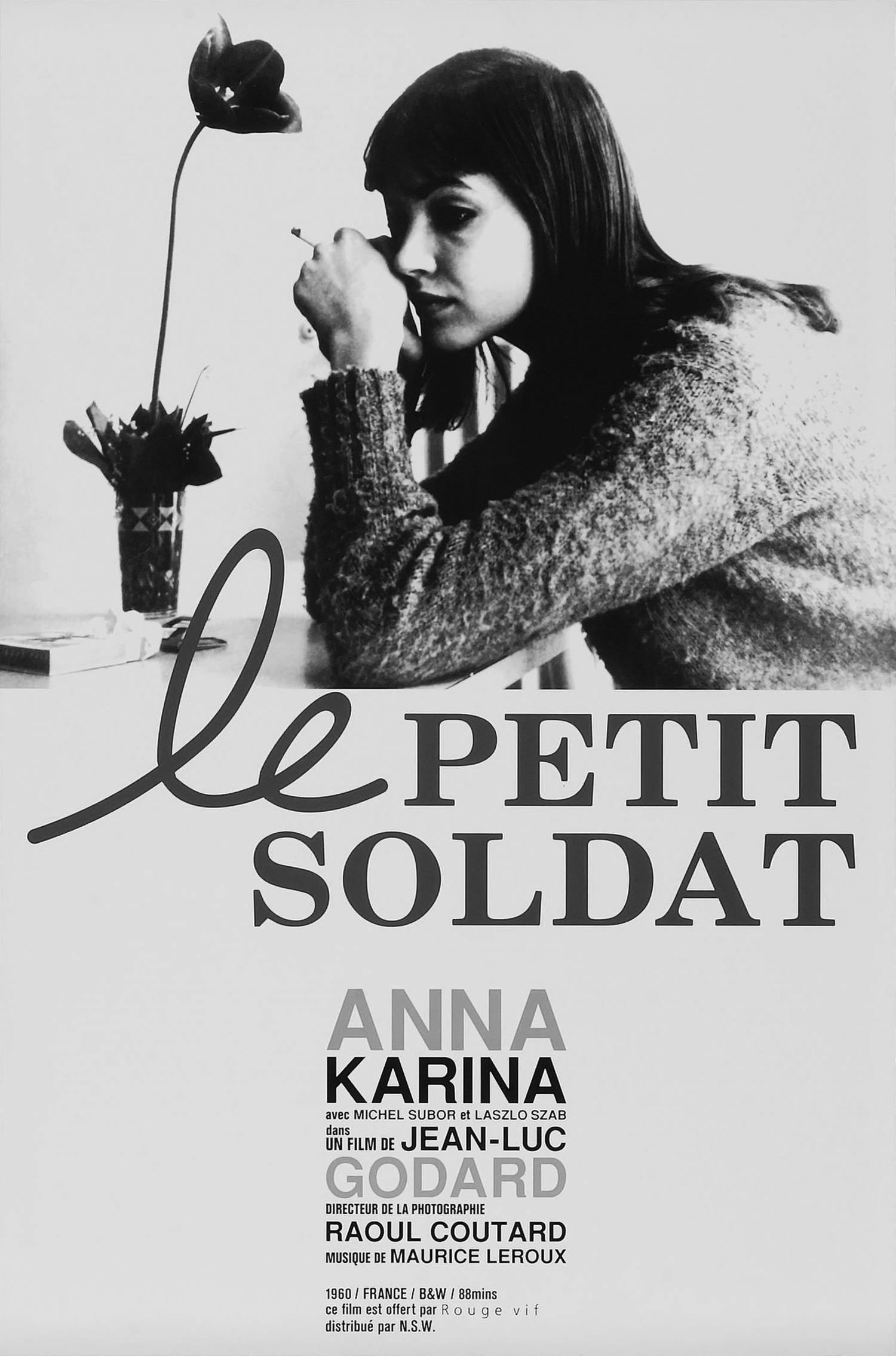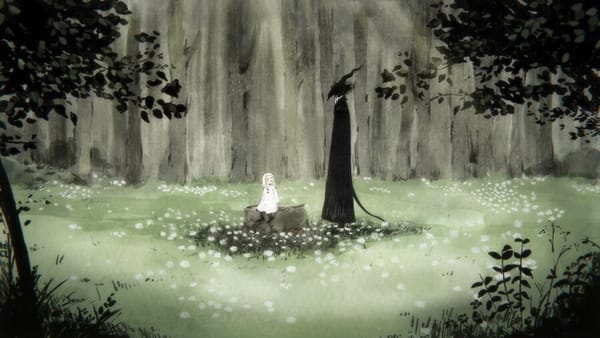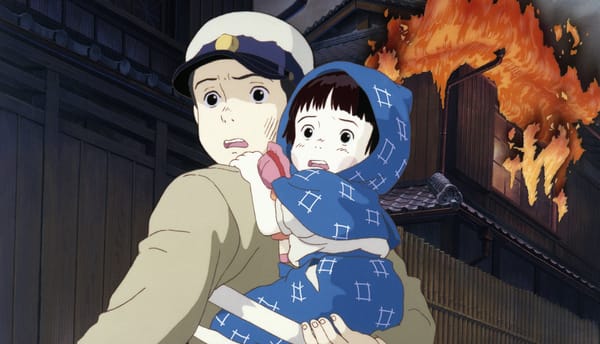Film Review: Le petit soldat
by Vic Neptune
After making his debut film Breathless, Jean-Luc Godard began his second film in 1960 before the first came out. This second movie, Le petit soldat (The Little Soldier), due to political censorship, wasn’t released until 1963, after the end of the French-Algerian War. Thus, it’s Godard’s fourth released movie, featuring the film debut of the Danish actress Anna Karina, who became the director’s first wife. By 1963 she’d already appeared in two other Godard films, winning the best actress award at the Berlin Film Festival for A Woman Is a Woman. She went on to act in four additional Godard films, becoming by the mid-1960s an international superstar. In Le Petit Soldat she plays Veronica Dreyer, an asset of the Algerian FLN (National Liberation Front). An FLN group operating in Geneva, Switzerland, protects Arthur Palivoda, a French radio personality sympathetic to the Algerian cause.
Bruno Forestier (Michel Subor), since his desertion from the French Army, has been working for La Main Rouge (The Red Hand), a terror group operated by French foreign intelligence, dedicated to eliminating pro-Algerian independence figures, like Palivoda. Bruno works with Jacques (Henri-Jacques Huet) and Paul (Paul Beauvais), who give him the assignment of assassinating Palivoda. They do a dry run, driving by the radio personality’s car on a country road. Bruno, ambivalent and a bit too cocky for Jacques and Paul, says he doesn’t want to do it.
We learn many things about Bruno, but Godard always keeps him hidden from our complete understanding. Like Hamlet, he thinks too much. We hear his thoughts, displayed in italics in the subtitles--he’s a philosophical young man, musing on death, art, music, women, suicide, travel. Stuck in Switzerland without a passport, he’s bound to the orders given by The Red Hand, but he can’t carry them out, until the end, when he makes a deal with Jacques and Paul to kill Palivoda in exchange for two diplomatic passports for Veronica and himself.
During his second failed attempt to carry out his assignment, Bruno gets spotted by two FLN agents. They track him down in Zurich, snatch him at a gas station and take him to an apartment in Geneva. They want the phone number of Jacques and Paul’s headquarters. A torture session involving burning with a cigarette lighter, waterboarding by putting a shirt over Bruno’s head and soaking it so he can’t breathe, and electricity, fails to break the victim’s will to not give up the number. He escapes by jumping out a window of the second floor apartment.
Returning to Veronica’s apartment, he comes to realize she’s FLN-connected, but his professed lack of ideals doesn’t lead him to want to avoid her. While he calls Jacques and Paul to agree, finally, to kill Palivoda in exchange for the passports, Jacques, recording the call, pretends not to hear and asks Bruno to repeat his name a few times. They use this recording to trick Veronica into opening her door. They take her somewhere for interrogation and torture, unbeknownst to Bruno, who carries out his assignment at last on a Geneva sidewalk in broad daylight, shooting Palivoda in the back. Not knowing yet what’s happened to Veronica, he runs around a building’s corner, vanishing from the movie as he expresses in narration his gladness that he’s bought himself some time.
This grim story depicts on the one hand Godard’s view of brutality practiced by both sides in the French-Algerian War, but also the poetically illuminated sense of the profundity of each passing living moment, for it is a deeply existential movie. Bruno lives in the present; his admitted lack of ideals gives him freedom to not be swayed by politics, but he also suffers from an uncertainty caused by living according to whim. The vicious well-dressed murderers he works for act from an idealism tinged with hatred of Arabs and the FLN. The FLN men who torture Bruno hate the French and The Red Hand. Though we don’t see the French torture methods, we can assume they’re the same as those used by the Algerians.
Godard’s location filming in Geneva provides a beautiful look at the city in 1960. All of the driving shots are real. He’ll often show actors among Geneva citizens in street scenes, the camera positioned in long shots. Anna Karina, in her first movie, lacks the poise and brilliance of her later work with Godard and other directors. The powerful performance by Michel Subor as Bruno Forestier is one of the film’s highlights. Possessed of great screen charisma, he adds much to the film’s power, playing a man fed up with the world’s ideologies, left in his mind with the comforts provided by art, literature, cinema, and music; but he’s a compromised man due to his Army desertion, drawn into a plot he helps fulfill only when it’s too late to save Veronica, with whom he’s fallen in love.
Stuck in Switzerland without a passport, no longer useful to The Red Hand, we are left to imagine his fate; it can’t be good, but he has a little time, something we can all usually count on during any given day.

Le petit soldat
Directed and Written by Jean-Luc Godard Staring Michel Subor and Anna Karina Cinematography by Raoul Coutard
Music by Maurice Leroux
Andrews McMeel Publishing 88 Min., 1963, French




